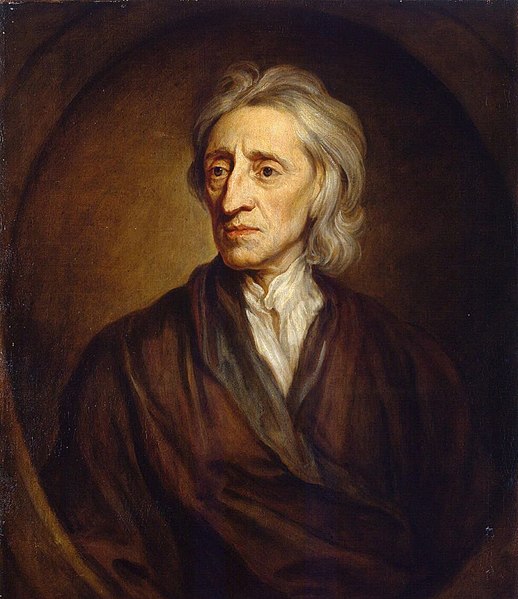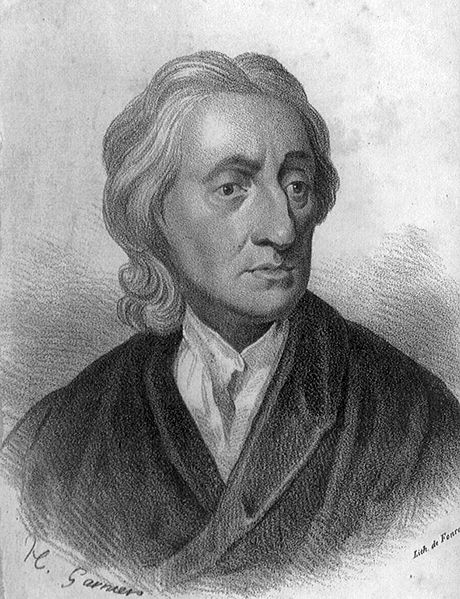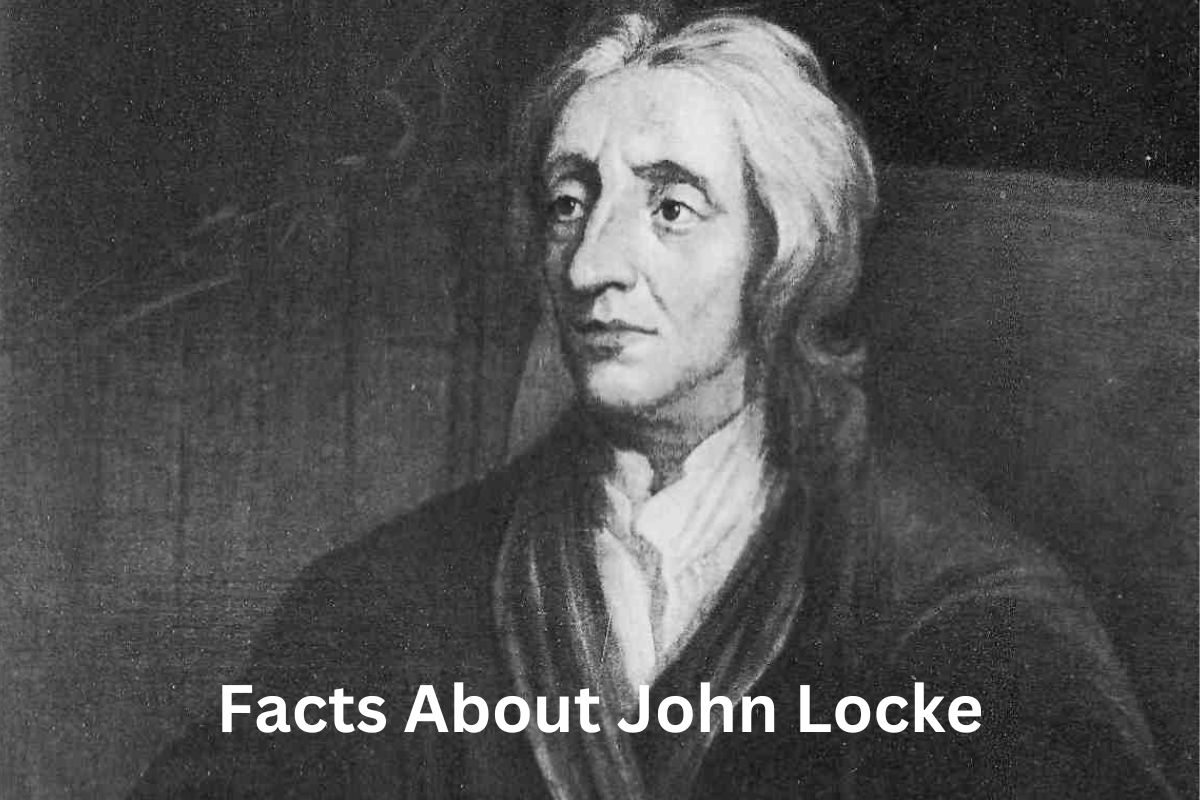John Locke (1632-1704) was an influential English philosopher and physician of the Enlightenment era. He is known for his significant contributions to political philosophy and epistemology.
Locke’s ideas on natural rights, the social contract, and the limits of governmental power have had a profound impact on the development of liberal democracy and the formation of modern political systems.
His concept of the tabula rasa, or blank slate, and his empiricist approach to knowledge have influenced the fields of psychology and education. Locke’s advocacy for religious tolerance and individual freedoms continues to resonate in contemporary debates.
John Locke’s works and ideas have left a lasting legacy in shaping political thought and philosophical discourse.
John Locke Facts
1. John Locke was an English philosopher and physician.
John Locke was an English philosopher and physician. He was born on August 29, 1632, in Wrington, Somerset, England. Locke’s father was a lawyer and a small landowner, and his family had Puritan religious beliefs.
Also Read: John Locke Timeline
He received a solid education and attended the prestigious Westminster School in London before studying at Christ Church, Oxford. After completing his studies, Locke briefly worked as a tutor and then pursued a career in medicine.

2. He is known for his influential works on political philosophy and epistemology
Locke’s intellectual contributions spanned various fields, but he is primarily known for his works on political philosophy and epistemology. His major works include “Two Treatises of Government” and “An Essay Concerning Human Understanding.”
“Two Treatises of Government,” published in 1690, is considered his most significant work on political philosophy. In this book, Locke presents his ideas on natural rights, the social contract, and the legitimacy of political authority.
Also Read: Accomplishments of John Locke
“An Essay Concerning Human Understanding,” published in 1689, is a seminal work in epistemology where Locke explores the origins and limits of human knowledge, arguing for the importance of experience and observation.
3. His most famous work is “Two Treatises of Government”
“Two Treatises of Government” is a renowned work that profoundly influenced political thought. In the first treatise, Locke argues against the concept of divine right of kings and defends the idea that political power is derived from the consent of the governed.
He asserts that individuals have natural rights to life, liberty, and property, which cannot be arbitrarily infringed upon by governments.
In the second treatise, Locke develops the concept of the social contract, suggesting that people voluntarily enter into a social contract to form a government that protects their rights and interests.
He emphasizes that governments have a duty to preserve these rights and can be justifiably overthrown if they fail to do so.
Locke’s ideas in “Two Treatises of Government” played a significant role in shaping democratic theory and had a profound influence on the American Revolution and the founding of the United States.
4. Locke advocated for natural rights, including life, liberty, and property
One of John Locke’s central ideas is the concept of natural rights. He posited that individuals possess inherent rights that are not granted by governments but are derived from their very nature as human beings.
These natural rights, according to Locke, include the rights to life, liberty, and property. He believed that individuals have a fundamental right to pursue their own interests, enjoy personal freedoms, and own and control their property without unjust interference from others.
Locke argued that governments exist to protect these natural rights, and any violation of these rights can justify resistance or even the overthrow of an oppressive government.

5. He proposed the concept of the social contract
Locke’s concept of the social contract is closely linked to his ideas on political authority. He believed that legitimate political power arises from the consent of the governed.
According to Locke, individuals voluntarily come together and enter into a social contract, relinquishing some of their natural freedoms and transferring their power to a government or governing body.
This government is established to protect the rights and interests of the people. Locke emphasized that the authority of the government is derived from the consent of the governed and that it is limited to its specific role of protecting natural rights.
If a government fails to fulfill this duty, individuals retain the right to challenge or even overthrow it, establishing the basis for resistance against tyranny and the pursuit of a just and accountable government.
6. Locke believed in the idea of a blank slate or tabula rasa at birth
Locke’s epistemological theory is encapsulated in the notion of “tabula rasa,” meaning a blank slate. He argued that the human mind is not innately endowed with innate ideas or knowledge at birth but is rather like an empty slate upon which experience and observation inscribe ideas.
Locke rejected the idea of innate knowledge or innate principles and proposed that all knowledge is derived from sensory perception and reflection on those perceptions.
According to Locke, human beings acquire knowledge through their senses and their interactions with the external world.
This empiricist perspective laid the foundation for modern empirical approaches to knowledge and influenced subsequent philosophers and thinkers, as well as the scientific method of inquiry.
7. He argued for religious tolerance and freedom of worship
John Locke was a staunch advocate for religious tolerance and freedom of worship. In his influential work “A Letter Concerning Toleration” (1689), he argued that the state should not enforce any particular religious beliefs or practices on its citizens.
Locke believed that religious matters were personal and voluntary, and individuals should have the liberty to follow their own religious convictions without fear of persecution or coercion.
He emphasized the importance of separating religious and political authority, asserting that the state’s role is limited to maintaining civil order and protecting individual rights, rather than dictating religious beliefs or imposing religious conformity.
8. Locke’s ideas had a significant impact on American political thought
Locke’s ideas had a significant impact on American political thought, particularly during the era of the American Revolution and the formation of the United States.
His concepts of natural rights, the social contract, and the right to resist oppressive governments resonated strongly with American revolutionaries.
Many of Locke’s ideas found expression in the Declaration of Independence, with phrases such as “life, liberty, and the pursuit of happiness” reflecting his influence.
Additionally, Locke’s theories of limited government and the importance of consent and popular sovereignty helped shape the structure and principles of the U.S. Constitution, including the system of checks and balances and the protection of individual rights through the Bill of Rights.
9. He had close associations with prominent scientists of his time
Locke had close associations with some of the leading scientists of his time. He was friends with notable figures such as Robert Boyle, the founder of modern chemistry, and Isaac Newton, the renowned physicist and mathematician.
Locke’s philosophical outlook was aligned with the emerging scientific revolution, which emphasized empirical observation and experimentation as the basis for understanding the natural world.
His friendship and intellectual exchanges with scientists likely influenced his empiricist philosophy, which emphasized the importance of sensory experience and observation in acquiring knowledge.
10. Locke’s writings continue to be influential in political and philosophical discourse
Locke’s writings and ideas continue to be highly influential and relevant in political and philosophical discourse. His theories on personal identity, religious tolerance, property rights, and the limits of government power have sparked numerous debates and discussions.
Locke’s emphasis on individual rights and limited government laid the groundwork for liberal democracies around the world and continues to shape modern conceptions of individual freedom, human rights, and the relationship between citizens and their governments.
His contributions to political philosophy and epistemology have left a lasting legacy and have had a profound impact on subsequent thinkers and movements.
